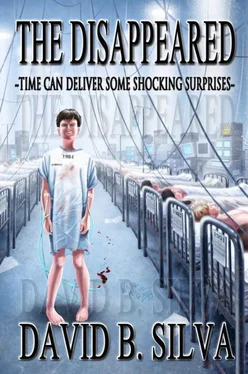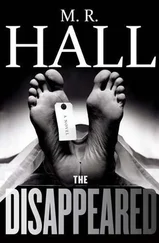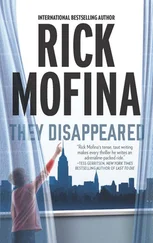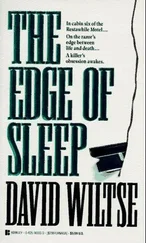“Well, you were right,” Walt said.
“What?”
“You were right. The department was in the middle of a budget crunch and after a couple of weeks, with no evidence that Gabe had been kidnapped, we were told to write it off as a runaway and get on with our other cases. You were right. And that’s why I quit. Because I was always under pressure to get on to something else.”
“I always thought…”
“It was your fault?”
She nodded.
“It was,” he said brightly. “And I thank you.”
Teri took that as the compliment it was meant to be, then absently pulled the local paper across the table and glanced at the headlines. There was something about unrest in South Africa, long after the elections, and that seemed to take up the majority of the banner. She flipped the front page and came surprisingly face-to-face with a photograph of Miss Churchill. The slug underneath read: Nursing Student Found Dead. A shudder rose up from somewhere deep inside of her.
“Walt…”
“What?”
“This is her,” Teri said. She spread the front page out across the table and flattened the crease. “See this picture?”
“Yeah.”
“That’s the woman from last night, the one with the boy.”
Walt began to read from the article. “Amanda Tarkett, age 26, was found dead this morning near the underpass at Blackmore and Vine after a mugging that apparently went awry. The police have not identified any suspects at this time, though they are following up on several leads, including a possible eye-witness. Miss Tarkett was out walking her mother’s dog when the incident occurred.”
“They killed her,” Teri said, her hands suddenly trembling.
“We don’t know that.”
“They killed her.”
The voices from the next room drifted lazily through the wall, muffled and barely distinguishable. The boy pulled the sleeping bag up around his neck, watching the shadows dance madly across the wall as a car passed by outside. He had always found it difficult sleeping in a strange place, and tonight was turning out to be no exception. He closed his eyes, surprised by the fact that every square inch of his surroundings, even the carpet fibers, smelled of Mr. Travis.
He listened to the voices wander toward the back of his thoughts, gradually falling into a deadening monotone.
Another car went by outside.
He shifted, and felt himself drawn into the warmth of his own little Never-Never Land, swimming peacefully at first, deeper and deeper, drifting into the dark, and then somehow finding his way out the other side, where the dream took him by hand and led him into the nightmare. In the nightmare, he was in a Hall of Mirrors. They were everywhere and nowhere, in front of him and beside him. There was a mirror with a huge spider-webbed crack that turned his face into a collage of noses and ears and eyes, all misshapen and overlapping. Another mirror that twisted and pulled at him until his reflection was a hideous Elephant Man with no mouth and eyes as large as his head.
Somewhere in the beyond, candles burned, the light dim and flickering. He turned, and over his shoulder, a thick black shadow swept through the maze like a thunderstorm through a mountain passage, dark and dangerous, coming after him. A pair of bright, fiery eyes stared malevolently out of the nothingness.
He turned and slammed into the cold, smooth surface of a mirror, turned again, slammed into another, and realized he was caught on all sides, face to face with his own reflections. To his left, a boy: thin and growing, maybe five or six years old, with hair more blond than brown. To his right, another boy: eyes dull, face drawn and weathered, flesh loose, somehow old and young at the same time. And behind him that dark, foggy wave slithering across the floor in his direction, a clock stealing time, the gap closing, no way out, everything closing in, the walls getting larger and thicker, his fists against the glass, his mouth wide, lungs burning, nothing coming out, until
…until
…until he finally woke up screaming.
Teri heard the scream and went running, her mind filled with horrible thoughts of what might have happened. She found the boy pressed into the corner, his sleeping bag pulled up around his waist, his forehead damp with sweat, his breathing shallow.
“It’s all right,” she said. “It was only a nightmare.”
She sat down next to him on the floor and rocked him in her arms.
Walt peeked in behind her. “Everything all right?”
Teri nodded.
The boy whimpered, and she held him a little tighter. “Shhh. It’s all right now. It’s all right.”
She was up early the next morning, but not early enough to catch Walt before he had left. There was a note on the counter, weighted down with the salt shaker. It read: I wanted to get an early start. I should be back tomorrow night. Wednesday morning at the latest. Make yourself at home. Keep a low profile. Walt.
Short and to the point.
Beneath his name, he had added a phone number where he could be reached. Teri read the note twice, looking for a hint of something but not really knowing what. When she finished her second time through, she folded the note in thirds and slipped it into the back pocket of her jeans.
The boy was up by then.
She watched him come stiffly down the hall, still half-asleep. His limp was more pronounced this morning, though she chalked that up to the fact that he had just woken up and was moving without his cane. He fell wearily into one of the chairs at the counter.
“You look tired,” she said.
“I am.”
“Didn’t sleep too well after the nightmare?”
He shook his head. “What’s for breakfast?”
“How about some bacon and eggs?”
“Sure.” He toyed around with the salt shaker, trying to spin it the same way he might spin a top, and Teri couldn’t help but wonder who he really was – this boy who looked so much like Gabe. She had stayed in the room with him last night, while he struggled to get back to sleep again. It was only after his eyes had closed and his breathing had become rhythmic that she noticed his fingernails. They had all been chewed, some almost down to the quick. Gabe had always been a nail-biter.
She brought the bacon out, managed to tear off a couple of slices, and set them in the frying pan. By the time the grease was snapping, she had already broken two eggs, added a slice of mild cheddar and some mushrooms, and scrambled the whole concoction in another pan. A slice of toast and a little butter and she had just spent as much time in the last ten minutes making breakfast as she had in the last ten years.
She set a plate on the counter in front of him, and watched as he shook a few grains of salt into the palm of his hand, and from there onto the eggs.
“Where did you learn that?”
“Miss Churchill,” he said. “This way you won’t use too much.”
“Makes sense.” She leaned back against the refrigerator, her hands behind her back, the fingers curled around the edge of the counter. “You remember Dr. Childs?”
“Uh-uh.”
“He’s the family doctor.”
“I thought Harding was my doctor.”
“No, he’s your dentist. Childs is your regular doctor.”
“You aren’t gonna make me go see him, are you?”
“’Fraid so, kiddo.”
“Ah, Mom…”
“It won’t take long,” she said quickly. She could have caught herself and corrected him about calling her mom , but as unnerving as she had initially found it, she had grown to like the sound of that word. Especially when he offered it up with such little effort, as if it were the word he had used all his life when referring to her. “I promise. He’s just going to take a look at you, and maybe see if we can figure out why your hair’s turning gray and you aren’t quite as strong as you probably should be.”
Читать дальше












